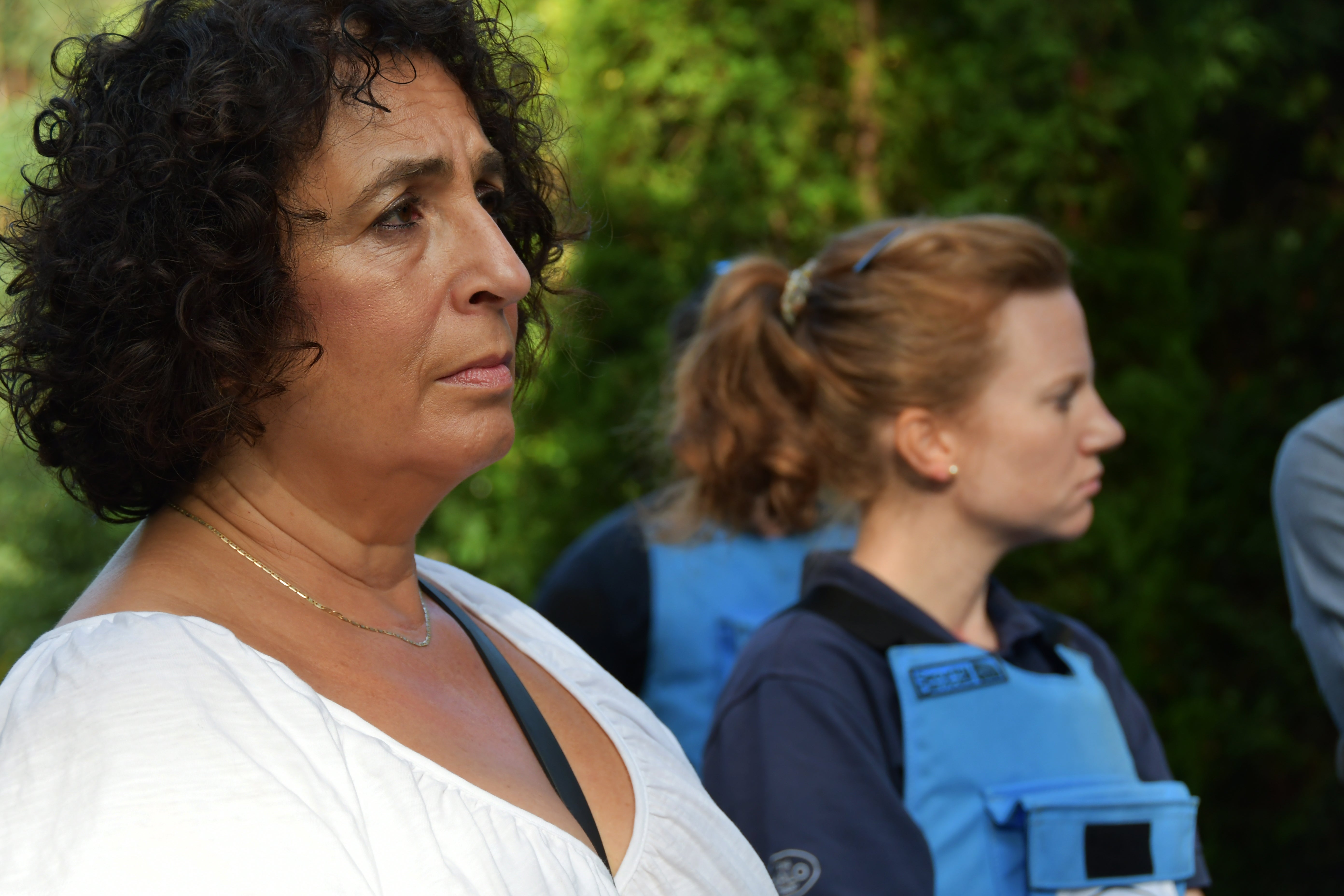Mine clearance charity marks six months of Ukraine war with special visit
The British ambassador to Ukraine visited an area near Kyiv where the charity the Halo Trust is working to remove landmines.

A Scottish mine clearance charity marked six months since the start of the war in Ukraine as the British ambassador met with one of the country’s first, female, landmine-clearance experts.
Melinda Simmons visited a minefield in a forest near Brovary, north east of Kyiv, on Monday where mine removal experts, or deminers, were at work.
The village came under repeated shelling and was occupied by Russian forces for 24 days in March, but returned to Ukrainian control in April
However, many houses were destroyed and the charity said there are a substantial number of cluster munitions, anti-personnel mines and anti-vehicle mines still hidden in the area.
Halo said at least one local resident has been killed by hitting a tripwire which detonated an anti-personnel, bounding fragmentation mine while walking in the forest.
It was here where Ms Simmons met with Tetyana Fedyuk, one of the charity’s first female deminers.
Ms Fedyuk comes from a small village in the Luhansk region and received the “best deminer of 2018” accolade after one year of service.
Although her home village was occupied by Russian forces, she managed to escape to join Halo Trust operations in and around Kyiv.
Speaking after her visit, Ms Simmons said: “After six months of this barbaric war, Russia has contaminated much of Ukraine with deadly landmines.
“Today I visited the Halo Trust site in Brovary, Kyiv, to understand the horrific wreckage to families, livelihoods and farmland caused by these deliberately planted landmines.
“The continued Russian targeting of innocent people is abhorrent.
“I saw the commitment of the deminers, many of them Ukrainian men and women, working away from their children or with family members fighting on the frontline.
“Their courage is inspirational.”
The Halo Trust, which has its headquarters in Thornhill, near Dumfries, is clearing areas around Kyiv of deadly explosive devices with support of £2 million funding from the UK Government.
The charity relocated from the Donbas to Brovary in northern Ukraine immediately after Russian forces withdrew from the Kyiv area, taking many of its original workforce with it and actively recruiting new deminers from the Kyiv region.
Mairi Cunningham, programme manager of Halo Ukraine, speaking on the day of the visit, said: “Today marks six months since the invasion of Russian forces in Ukraine.
“Many of my demining colleagues endured weeks of suffering in Mariupol and elsewhere in the Donbas but are determined to work with Halo to remove the explosive remnants of war in their country.
“We are deeply grateful to ambassador Simmons for showing her support during yesterday’s visit and would like to thank her and the FCDO for the emergency £2 million funding to assist with Halo’s work here.”
She added: “Clearing landmines and explosive ordnance is not only necessary for saving lives, but also to help Ukrainian farmers get crops back on the roads and out to export.
“This will be key if we are avoid the global food crisis triggered by the events of March 2022.”